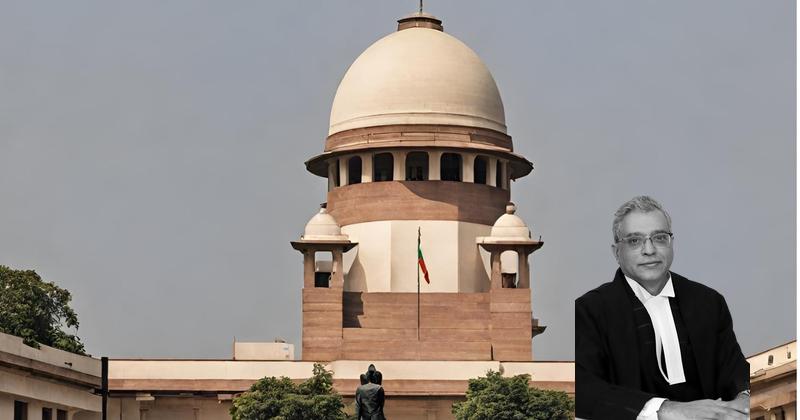Explore the complex legal landscape of parallel prosecutions in cases involving dishonored cheques. The judgment provides insights into whether criminal trials can proceed simultaneously for different sets of cheques issued in relation to the same transaction. The court’s in-depth legal analysis sheds light on the application of Section 138 of the NI Act and the significance of settlement agreements in such disputes.
Facts
- The High Court granted liberty to ACL to approach the High Court regarding the specific plea that the compromise deed and cheques issued under it were entered into under coercion.
- The High Court held that the second set of cheques issued based on the deed of compromise were not issued for any liability due to pending criminal complaints related to the first set of cheques.
- The validity of the deed of compromise is challenged in a suit pending before the High Court, making the cheques issued under it unable to be considered as discharge of liability.
- The High Court dismissed proceedings by ACL against the first complaint and directed for trial completion within three months, while quashing proceedings in the second complaint by the respondent Manoj Goel.
- The High Court refused to quash the first set of complaints instituted on 10 March 2017.
- A criminal appeal resulted in a compromise during pendency, where the respondent issued a post-dated cheque to the appellant.
- ACL filed a review application seeking clarification that findings should not influence the trial of the criminal complaint.
- The Single Judge quashed proceedings in the second complaint under Section 138 and provided reasons for the same.
- The appellant filed a complaint under Section 138 of the NI Act against ACL for dishonoring cheques in 2012.
- A deed of compromise was entered into on 12 March 2013 between the appellant and ACL.
- The compromise stipulated certain conditions, leading to Mukesh Goel being granted bail.
- ACL allegedly failed to make payments despite the appellant supplying goods and paying customs duty and wharfage charges.
- A second complaint under Section 138 of the NI Act was filed by the appellant in 2017 due to dishonored cheques.
- Legal proceedings were initiated by ACL and its directors to quash the complaints under Section 138 of the NI Act.
- There were bail applications, special leave petitions, and petitions under Section 482 of the CrPC filed by various parties.
- Several criminal complaints, civil suits, and legal notices were exchanged between the appellant and ACL.
- High Seas Sale Agreements and dishonored cheques were key points of contention between the parties.
- Multiple proceedings were conducted before the Madras High Court and this Court regarding the disputes.
Also Read: Electoral Malpractices in Mayor Election
Issue
- The issue before the Court is whether parallel prosecutions can be sustained for a single transaction under Section 138 of the NI Act.
- The key question is whether a criminal trial can proceed with both sets of cheques involved.
- Section 138 mandates that a cheque must be for the discharge, in whole or in part, of any debt or other liability.
Also Read: Balancing Power and Transparency: Electoral Bonds Struck Down, Disclosure Mandated
Arguments
- Offense under Section 138 of NI Act is complete once its ingredients are fulfilled.
- Once the offense is complete and a prosecution is launched, it must proceed to trial.
- High court cannot quash the prosecution based on a compromise deed not implemented due to the accused’s default.
- Liability existence and nature of cheques issued are trial matters.
- The court must proceed on the basis that the cheques were issued in discharge of a legally enforceable debt due to Section 139 of NI Act.
- The pendency of a suit challenging the compromise deed is not sufficient grounds to quash the criminal complaint.
- No restriction under Section 138 of NI Act on parallel proceedings for distinct offenses involving dishonored cheques.
- Accused breaching the settlement cannot seek quashing of criminal complaints; the Magistrate will determine the appropriate sentence post-trial.
- The appellant’s failure to withdraw criminal proceedings and pursuing arbitration was argued as a repudiation of the settlement by the respondent.
- The respondent’s counsel argued that this argument should not be entertained in proceedings under Section 482 CrPC and should be left for trial.
- The deed of compromise is seen as a novation by the respondent.
- The respondent contends that the appellant can only seek enforcement of liability with respect to the first set of cheques.
Also Read: Recall of Resolution Plan Approval: Legal Analysis
Analysis
- (iii) The liability under the first set of cheques was replaced following the deed of compromise by the second set of cheques;
- As a consequence of the deed of compromise there was a novated contracted between the parties;
- In terms of the provisions of Section 39 of the Indian Contract Act 1872 it is open to the appellant as the promisee to elect whether to repudiate the agreement or continue with its performance on breach of the agreement by the other party (respondents);
- The appellant has in fact repudiated the deed of compromise by failing to withdraw the criminal complaint and the arbitral proceedings;
- The appellant can in the circumstances only enforce the liability in respect of the first set of cheques as a consequence of which the criminal prosecution in respect of only the first set may proceed;
- The High Court erred in quashing the criminal complaint based on a deed of compromise.
- The settlement agreement effaces the original complaint, and relitigating it is not permissible.
- The breach of the compromise deed due to dishonoured cheques led to the second complaint under Section 138.
- The accused faced criminal liability for both the original transaction and the compromised cheques.
- The threat of jail acts as a deterrent for non-payment.
- Misconceived complaints based on the same liability should be resolved through trial.
- The compensatory aspect of the remedy should prevail over the punitive aspect.
- Section 139 of the NI Act raises a presumption that the holder of a cheque receives it for the discharge of a debt unless proved otherwise.
- Settlements in cases under Section 138 of the NI Act are encouraged for early resolution and closure of cases.
- Multiplicity of complaints under Section 138 hampers the ease of doing business and has led to a proposal for decriminalization by the Ministry of Finance.
- Compounding of offences under Section 138 is preferred to resolve disputes amicably.
- Non-compliance of settlement terms can lead to fresh cause of action under Section 138.
- Parties are bound by the terms of a settlement agreement, and pursuing both original and subsequent complaints is not permissible.
- The settlement agreement subsumes the original complaint.
- Single Judge was wrong in quashing complaint CC No 389/2017
- If compromise deed is void ab initio due to coercion, basis for quashing first complaint is removed
- High Court failed to understand Section 139 presumption
- Filing suit challenging compromise deed does not justify invoking Section 482
- If second complaint invalid and compromise deed void, first trial should continue
- Deed of compromise remains valid until set aside by appropriate court decree
- Issue of transaction nature could not be examined under Section 482 proceedings
Decision
- The judgment of the Single Judge quashing the complaint is set aside
- The complaint CC Nos.3326-3329 of 2012 and CC Nos.99-101 of 2013 are quashed
- All rights and contentions of the parties are kept open for the trial
- Pending applications, if any, are disposed of
- Criminal Appeal No 1068 of 2021 arising out of SLP (Criminal) No 6564 of 2019 and Criminal Appeal Nos. 1069-1075 of 2021 arising out of SLP (Criminal) Nos.7632-7638 of 2019 shall stand partially allowed
- The appellants are allowed to approach the competent court for reinstatement of the original complaint and the trial can proceed based on that
- Once the compromise deed dated 12 March 2013 was agreed, the original complaint must be quashed and parties must proceed with the remedies available in law under the settlement agreement
Case Title: M/S GIMPEX PRIVATE LIMITED Vs. MANOJ GOEL (2021 INSC 637)
Case Number: Crl.A. No.-001068-001068 / 2021



